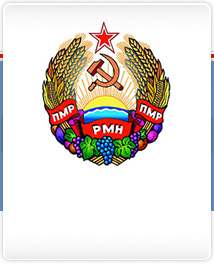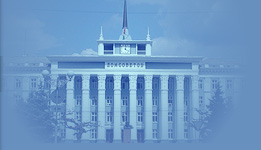Igor Smirnov: "What matters first of all is the opinion of the people who live here"
After 16 years of independence, Pridnestrovie is on its way to international recognition and integration says its president, Igor Smirnov. In this interview, he answers questions about the difficulties of leading an unrecognized country and how he sees future relations with Moldova and with the rest of the world.
 Former metal-worker Igor Smirnov, 64, is the current president of Pridnestrovie. On the occasion of the 16 year anniversary of the 2 September 1990 declaration of independence of the Pridnestrovskaia Moldavskaia Respublica (Pridnestrovie, or PMR for short), he held a press briefing in Tiraspol with the participation of 55 local and foreign journalists.
Former metal-worker Igor Smirnov, 64, is the current president of Pridnestrovie. On the occasion of the 16 year anniversary of the 2 September 1990 declaration of independence of the Pridnestrovskaia Moldavskaia Respublica (Pridnestrovie, or PMR for short), he held a press briefing in Tiraspol with the participation of 55 local and foreign journalists.
Pridnestrovie, born in the dissolution of the Soviet Union, is now 16 years old. Can you sum up the main challenges?
" - The 16th year of the life of our state presented complexities in both the political and in the social and economic aspects. Economically, the actions of Moldova and Ukraine caused great hardship to our factories and legitimate exports. At the same time, the political pressure from other countries against our state were strengthened, too. First, the usual baseless accusations of weapons smuggling, drug trafficking, sex slavery and people trafficking. Secondly, an inappropriate demand from Moldova that the peacekeepers should be changed and that the responsible and valuable Russian participation in the peacekeeping contingent was unwelcome. This entire rhetoric was accompanied by an increased in the frequency of staged provocations in the safety zone and an obstructionist attitude by the Moldovan representatives to the Joint Control Commission which oversees the multinational peacekeeping contingent. Added to all this, Pridnestrovie had to go through another terrible test: Terrorism. During July and August of this year, Tiraspol was subjected to two terrible explosions in the public transport system, taking the lives of many innocent citizens."
Is Pridnestrovie still viable as an independent state?
" - Now, more than ever. Any society, any state is properly viably, when it knows how to not only overcome different and difficult tests, but also knows what is needed to succeed. Certainly, by foundation, the basis of any undertakings is the economy. Speaking about the economic development of our state, I will note that in spite of all objective problems, the financial system of republic remains functioning. Laws are fulfilled, and the budget for 2007 has been approved with amounts that are not lower than those of 2006. The privatization of businesses continues and there are good prospects of increasing the volumes of production - we plan their increase not less than 40%. An increase in the basic economic indices in limits of 15-20% to the level of the present year so is expected. Despite the blockade, in this year we have increased the spending on pensions and social services. Inflation is under control: This year, it is less than 3 percent."
Is this because of Pridnestrovie's non-Communist, market-reform oriented policies?
" - Without the guarantee of a proper level of economic freedom, creation of the equal conditions of competition and equality of all before the law, necessary for the transparency of tax system we would hardly be able to manage the economic problems which are imposed on us from the outside. Everyone from parliament to the cabinet of ministers know that today it is necessary to diversify the economy, giving it innovation and quality. Further stabilization and development of free and market-based funding will be necessary. We must increase the confidence of the shareholders and improve the protection of the private property of all. We must correctly arrange priorities and preserve the economic policy which was chosen by us 16 years ago. And in this connection I will note one of the essential targets of our policies, namely: the low level of confidence which citizens have in the individual government institutions and large businesses. I speak about the problem of corruption, which is of course not just a problem in Pridnestrovie, but to a greater or lesser extent a problem for all other countries, too. And we are taking specific steps to tackle this. Together with strengthening of legislative responsibility and more efficient connection to law-enforcement, this year our country's parliament created an autonomous and independently funded Ombudsman institution, to operate in complete freedom and act as the country's main human rights advocate. Be it a businessman or a government official of any rank - they are obligated to remember that the people is the source of prosperity and prosperity of republic and that the state will not to cover its eyes to their "activity" if the result of that becomes illegal benefit by "special" relations with each other. We will stamp out corruption."
In your view, is it possible to resume status settlement negotiations with Moldova?
" - Yes, of course it is possible to renew the status talks. But it must be a dialogue where there is mutual respect for the legitimately held views of each side. Pridnestrovie will conduct negotiations solely on an equal basis. The position of Pridnestrovie in the settlement dialogue will be guided by the outcome of the 17 September referendum. Now, I must say that I am skeptical about the possibility of building a common state with the Republic of Moldova because Chisinau and Tiraspol have different vectors of foreign policy development. Remember that states are united in order to create favorable conditions for the people in the economy, in the social sphere and in other areas. But for all of these past 16 years, from the Moldovans we see an entirely different outlook. All of the actions of Chisinau are aimed at harming the population of Pridnestrovie. Moldova is engaged in pressure tactics, including on the economic front. In the period from 3 March to 14 August 2006, PMR lost 267 million US dollars (due to new customs regulations, ed.). Exports from Pridnestrovie comprised just 30% of the previous level. Tax collections were only 41 million dollars, and GDP volume is down 15% in comparison with the same period last year."
Will Pridnestrovie be diplomatically recognized by the world? And what will Moldova's reaction be?
" - I look at the recent Montenegro plebiscite and the moves towards a solution for Kosovo, and I can say with certainty and confidence that Pridnestrovie, too, will obtain the recognition of its independence. At the same time, the people of Pridnestrovie will of course want good neighborly relations with the people of Moldova. Our government stands ready to conduct negotiations with Chisinau over the normalization of relations, on the basis of two equals with mutual respect. But Chisinau sees a different purpose of the settlement and status talks. We want normal relations between the two sides of the Dniester, but that is not the purpose of Chisinau. Instead, they consider Pridnestrovie to be theirs, to belong to them, calling us their "eastern region" and want one single unified state under the central command of Chisinau. However, this is impossible, precisely because of their own actions. By their own policy, the Moldovan leaders themselves destroyed the plan for a common state. We wanted to preserve what we had in common, and at various times in the past we proposed different alternatives to Chisinau. But every time a common solution was in sight, external advisers or the ambitions and voracity of Moldovan politicians came in the way and destroyed any possibility of finding common ground. We even wanted economic integration with Moldova, and it was not us, but them, who decided to hurt and even destroy our economy. That is how they want to work: The Chisinau Politburo wants to give orders and want Tiraspol to just follow them. But they can forget about that, it will simply never happen."
Your country is holding an independence referendum on 17 September 2006. Yet, both of your neighbors, Moldova and Ukraine, have stated quite clearly that they do not recognize this referendum. Your response?
" - Democracy is not a foreign import. The statements of foreign politicians about the unwillingness to recognize the results of referendum in Pridnestrovie, which will take place on 17 September, does nothing to minimize the value of this event for the republic. For us, what matters first of all is the opinion of the people who live here, and they will freely go to the polls and vote on September 17, regardless of whether some foreign politician in another country likes it or not. In no way can a foreign country's opinion or policy trample the fundamental right of a people to select its own fate freely and democratically by casting their vote. Democracy is not a foreign import, but we have long noticed a policy of double standards from countries who proclaim to be in favor of democracy but at the same time will not let us vote freely and democratically on our own future."
Last year, the opposition introduced reforms to lessen the power of the presidency. This year, they are a majority in parliament. Do you fear that this proposal will be re-introduced and voted into law?
" - I don't feel that there is a pressing need for carrying out radical reforms in the system of state administration. This is a question of the separation of authorities. The legislature can not give itself powers which naturally should belong to the executive branch. In the current situation, when the actual status of the republic is not internationally recognized, there are treats to the existence of our republic, including threats from abroad. And in this situation it would be inexpedient to change Pridnestrovie from a presidential republic to a parliamentary republic. Now, at the same, my opinion is that the system of state administration in PMR must be improved. If this means that we need to create the post of prime minister, then that means that there will be a prime minister. But at this point in time I do not see this need."
How do you feel about accusations that you are a dictator or that Pridnestrovie is a black hole?
" - The year 2006 became the year of the information breakthrough. By honest and impartial reporting of the events here, the world community could see the reality of how we live and how we conduct ourselves. This substantially shook and changed the black information campaign and Moldovan-manufactured false myths about us, a negative stereotype about Pridnestrovie (or Transnistria, as it is known in Moldova, ed.). This was important and we are very grateful for this. At the same time, there was still much slander and baseless accusations against us. We saw it, we are used to it, and we understand why it exists, because we know who need to invent these myths and why they are needed, and for whom. But that is what a "free" press is about: They are free to lie, too, if they want. However, I want to say that the word "freedom" stands next to the word "decency". I am sure that those who hear my words are aware of this and will honestly and impartially report on the true reality of life here in free and independent Pridnestrovie."
01.09.2006




